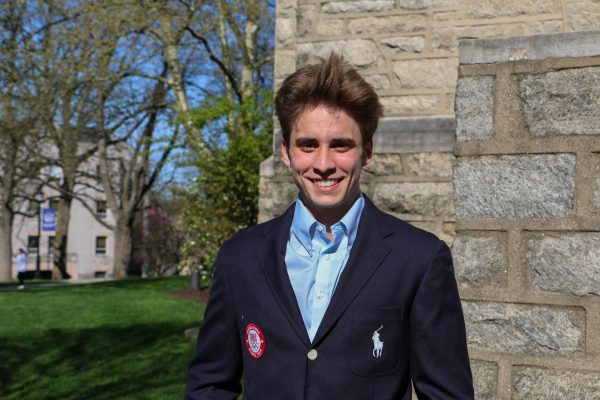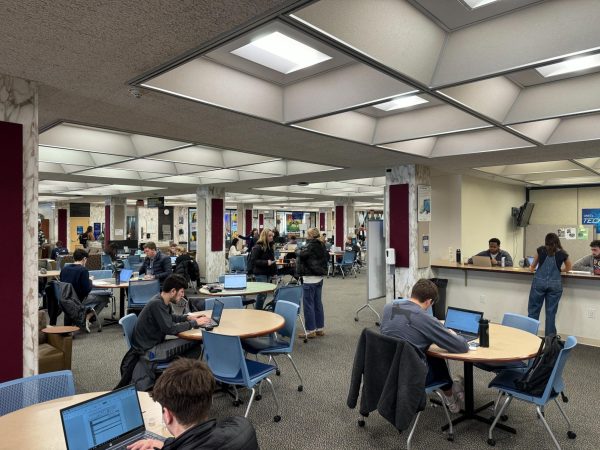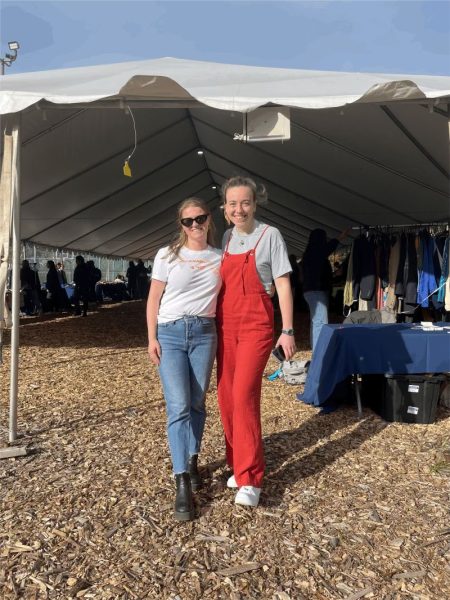Starting a legacy
March 17, 2010
It’s no secret Villanova University prides itself on the fact that its alumni are eager to continue their family legacy by sending their children to share in the community that is Villanova. As the daughter of two Villanova graduates myself, I am familiar with the pride and passion Villanova alumni have toward their alma mater. Yet while the number of enrolled students with alumni affiliation has always been relatively high, the class of 2013 boasts a relatively substantial percentage of a rather different kind.
Through information provided by the Common Application, Villanova’s Office of Admissions has been able to successfully track the number of first-generation students in the current freshman class for the first time in Villanova history. The newest group of students includes an impressive population of approximately 13 percent of the entire class that are first-generation students. This means that among the 1,643 students making up the Class of 2013, over 200 of these students will be the first in their families to earn a college degree.
Stephen Merritt, dean of Enrollment Management explains, “Interestingly, this cohort is approximately the same size as our first-year students called legacies, whose parents attended Villanova.”
While many have viewed the Villanova student body as heavily made up of legacies, a group rivaling in size has remained relatively under the radar. While it is easy to understand the influences and motivation that lead students with alumni affiliation to become legacy year after year, the explanation as to why so many first-generation students apply and enroll at Villanova is not so easily distinguished.
One factor that perhaps motivates first generation students to choose Villanova over other universities may lie in the availability of financial aid.
“I believe both here at Villanova and across the country at other top colleges and universities, need-based assistance is a very important factor in college attendance for first-generation students,” Merritt says.
While he does note that, “like the general Villanova population, not all first-generation students apply for and/or demonstrate financial need,” Villanova has prided itself on continuing rises in the amount of financial aid awarded to qualifying students, a factor that may increase the University’s overall appeal. This past year, for example, tuition costs rose just 2.9 percent while financial aid increased 11 percent. In today’s economy, heavily affected by recession, many families of both first-generation students and those with degree-holding parents have had to make significant financial sacrifices. Yet Villanova prides itself in providing those in financial need with opportunities. However Merritt finds that, “Knowing 13 percent of our first-year students are first-generation is very encouraging and strongly supports our continued University Admission efforts at broad national outreach and our Financial Assistance Office’s dedication to providing access through need and merit-based aid,” Merritt says.
Villanova’s appeal extends much further than strictly financial aid, and many have attributed the strong sense of community as one of the main reasons for choosing to enroll. Damian Long, a first-generation student and current senior here at Villanova recalls the role the University’s reputation had in regards to his college selection process.
“Villanova is able to offer this image of family, faith, charity and most of all, support,” Long says. “Every member of the Villanova community takes an active role in encouraging students to fulfill their potential and tap into what truly inspires them.”
The sense of community Villanova provides offers many first-generation students the ability to find confidence and comfort in their abilities to succeed at the college level.
“First-generation students have a lot of initial apprehension and need guidance in order to build confidence when they falter or hit pot holes along the way,” Long says. “I have found that the faculty, staff and students are eager to provide the support needed to get back on track, find help or get advice.”
Villanova’s reputation as being a welcoming and supportive community for all backgrounds seems to be an important factor that captures not only the attention of the legacy who have grown up with a Villanova influence, but also that of the often anxious first generation student.
While Villanova’s sense of community may prove a strong reason for first-generation students’ interest, the academic reputation also remains a factor. Students who are the first to attend college in their families are usually driven and dedicated to their education. The parents of these students recognize the importance of education and encourage their children to fulfill their greatest potentials. Long’s parents instilled in him a strong sense of the importance of education when it comes to finding success in life.
“Through my parents’ experiences, it became apparent that education is key to opening many doors to amazing opportunities for a bright future for myself and future Long generations,” he said.
So while it is easy to find the students whose parents, like mine, are all too quick to prove they still know every word to the Villanova fight song, it ought to be the students whose college legacy begins with Villanova that are most acknowledged and celebrated.











